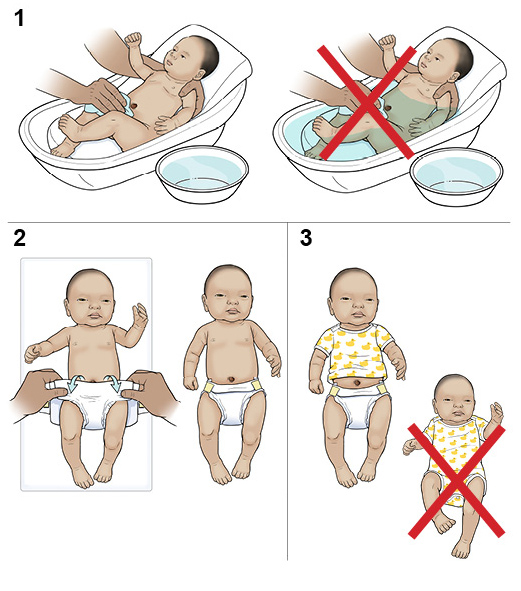Caring for Your Baby’s Umbilical Cord: A Comprehensive Guide
The umbilical cord is a vital lifeline that connects your baby to you during pregnancy. It provides oxygen, nutrients, and waste removal for your growing child. After birth, the umbilical cord is clamped and cut, leaving a small stump that will eventually dry up and fall off.
Caring for your baby’s umbilical cord is an important part of newborn care. Proper care can help prevent infection and promote healing. Here is a comprehensive guide to caring for your baby’s umbilical cord:
1. Keep the Cord Clean and Dry
The most important thing you can do to care for your baby’s umbilical cord is to keep it clean and dry. This will help prevent infection.
- Do not bathe your baby until the cord falls off. Bathing can introduce bacteria to the cord, which can lead to infection.
- Sponge bathe your baby instead of immersing them in water. Use a clean, soft washcloth and warm water to gently clean your baby’s body. Avoid getting the umbilical cord wet.
- Keep the cord dry by exposing it to the air. Dress your baby in loose, comfortable clothing that does not rub against the cord.
- Do not cover the cord with a diaper. This can trap moisture and bacteria against the cord.
2. Inspect the Cord Daily
Once or twice a day, inspect your baby’s umbilical cord for any signs of infection. Look for:
- Redness
- Swelling
- Pus or drainage
- Bad odor
If you notice any of these signs, call your doctor immediately.
3. Clean the Cord with Alcohol
If the umbilical cord becomes dirty or wet, you can clean it with rubbing alcohol.
- Dip a cotton ball or swab in rubbing alcohol.
- Gently wipe the cord from the base to the tip.
- Allow the alcohol to air dry.
Do not use hydrogen peroxide or other harsh chemicals to clean the cord. These chemicals can damage the delicate skin around the cord.
4. Wait for the Cord to Fall Off
The umbilical cord will typically fall off within 10-14 days after birth. Do not pull or cut the cord. This can cause bleeding and infection.
Once the cord falls off, the area will be slightly red and moist. This is normal. Keep the area clean and dry, and it will heal within a few days.
5. Call Your Doctor if You Have Concerns
If you have any concerns about your baby’s umbilical cord, call your doctor. They can assess the cord and provide you with instructions on how to care for it.
Signs of Infection
In rare cases, the umbilical cord can become infected. Signs of infection include:
- Redness
- Swelling
- Pus or drainage
- Bad odor
- Fever
- Irritability
- Poor feeding
If you notice any of these signs, call your doctor immediately.
Treatment for Infection
If your baby’s umbilical cord becomes infected, your doctor will prescribe antibiotics. Antibiotics will help to clear the infection and prevent it from spreading.
In some cases, your doctor may need to surgically remove the infected cord. This is a rare procedure, but it may be necessary to prevent the infection from spreading to your baby’s bloodstream.
Preventing Infection
The best way to prevent umbilical cord infection is to keep the cord clean and dry. Follow the care instructions provided by your doctor, and call your doctor if you have any concerns.
Conclusion
Caring for your baby’s umbilical cord is an important part of newborn care. Proper care can help prevent infection and promote healing. By following the tips in this guide, you can help your baby’s umbilical cord heal quickly and safely.

